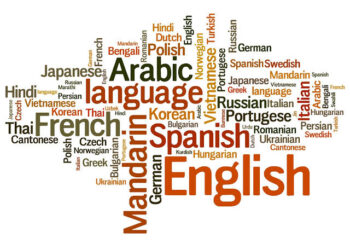Generation Z, also known as the iGen or the post-Millennials, is the demographic cohort born between 1996 and 2010. These young adults are the first generation to grow up in a completely digital world, and their language use reflects this. They are known for their heavy use of internet slang, emojis, and abbreviations in their communication. However, as Generation Z becomes increasingly reliant on technology and social media, there are concerns that their language use may be negatively impacting their psychological well-being.
One of the most striking features of Generation Z’s language use is their heavy reliance on internet slang and abbreviations. Words like “lit:’ ‘on fleek.” and ‘bae’ are common in their vocabulary, and they often use shorthand like ‘u’ for ‘you” or “tho” for “though.’ This type of language use can create barriers for older generations who may not understand the meaning behind these words and phrases. It can also lead to misunderstanding and confusion in face-to-face communication, as these words and phrases are often specific to online communication.
Another notable aspect of Generation Z’s language use is their heavy use of emojis. These small digital images are used to express emotions and ideas visually. Generation Z use emojis to communicate everything from love and happiness to sarcasm and anger While emojis can be a fun and creative way to express oneself, they can also lead to confusion and misinterpretation. Without the context of tone and body language, it can be difficult to understand the intended meaning behind an emoji. The heavy use of internet slang and emojis by Generation Z can also be seen as a reflection of their lack of face-to-face communication skills. As they spend more and more time online, they may be losing the ability to effectively communicate with Others in person. This could lead to problems in their personal and professional lives, as they may struggle to connect with others and form meaningful relationships.
Moreover, the constant use of social media and technology can also have a detrimental effect on the psychological well-being of Generation Z. Studies have shown that excessive use of social media can lead to feelings of loneliness. depression. and anxiety. The constant need for validation and approval from others can also lead to feelings of low self-worth and self-esteem. Additionally, the constant bombardment of information and images can lead to feelings of overwhelm and information overload.
In conclusion, while Generation Z’s language use may be unique and creative, it can also create barriers in communication and negatively impact their psychological well-being. It is important for parents, educators, and mental health professionals to be aware of these concerns and work to help Generation Z develop the communication and coping skills they need to thrive in an increasingly digital world. Encouraging them to engage in face-to-face communication and limit their screen time can help them to build stronger relationships and a healthier psychological state.
ADDRESS: Lagos State University, PMB 0001, Badagry Expressway, Ojo.

















